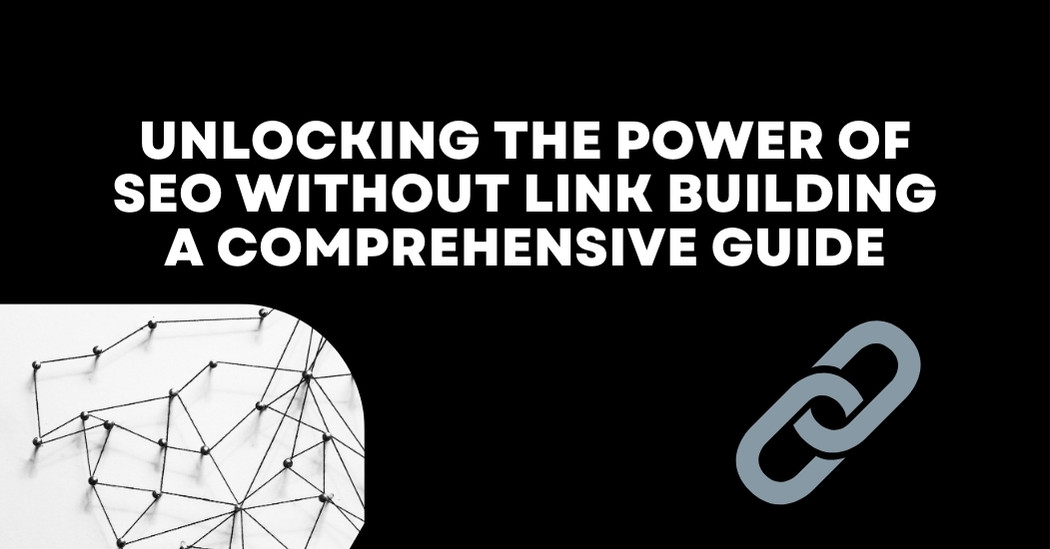Are you looking to improve your website’s keyword rank without relying on traditional link building strategies? In this comprehensive guide, we’ll explore the powerful techniques and strategies for boosting your query positioning without the need for external backlinks. From enhancing site crawl and indexing to leveraging on-page SEO techniques and organic click-through rate, we’ll delve into the actionable steps that can propel your keywords to the top of search engine results pages.
Join us as we uncover the potential of on-page optimization, schema markup, page speed enhancements, and topical authority, offering a holistic approach to achieving keyword rank success. Whether you’re new to SEO or seeking innovative methods to enhance your website’s visibility, this article will equip you with the knowledge and tools to elevate your keyword rank without traditional link building efforts. Let’s dive into the world of SEO without link building and unlock the strategies that can elevate your website’s visibility and drive organic traffic.
Key Takeaways:
- Focusing on on-page optimization and technical improvements can increase keyword ranking without link building.
- Utilizing schema markup, improving page speed, and creating relevant content are effective strategies for improving positioning without links.
- Leveraging topical authority, on-page SEO techniques, and internal linking strategies can also contribute to ranking without backlinks.
 Can You Increase Keyword Rank Without Any Link Building?
Can You Increase Keyword Rank Without Any Link Building?
Enhancing keyword rank without relying on traditional link building strategies is an achievable goal, requiring a deep understanding of query positioning, search engine algorithms, and on-page optimization techniques.
By strategically optimizing on-page elements such as titles, meta descriptions, headings, and content, websites can signal their relevance to search engines for target keywords, enhancing the potential for ranking improvement. Incorporating related keywords and entities within the content can further strengthen the context and provide a comprehensive understanding of the topic.
Understanding user intent and aligning the content to address specific queries also plays a pivotal role in achieving higher rankings without solely depending on backlinks. By focusing on content relevance and user experience, websites can establish authority and attract organic traffic, contributing to improved keyword rankings.
Understanding Query Positioning and Keyword Rank
Understanding query positioning and its impact on keyword rank is crucial in the realm of SEO, as it directly influences a website’s visibility and relevance in search engine results.
Strategies for Improving Positioning Without Links
Employing effective strategies to enhance positioning without traditional link building tactics involves optimizing various elements such as content, website structure, and page performance, catering to the evolving demands of search engines and user experience.
Site Crawl & Indexing Improvements
Implementing enhancements in site crawlability and indexing is a fundamental strategy for improving keyword positioning without direct link building efforts, as it ensures that search engines can effectively discover and index the website’s content.
When a website’s crawlability and indexing are optimized, it means that search engine bots can easily navigate the site, access its pages, and comprehend the content within them. This, in turn, can lead to improved visibility and a higher ranking on search engine results pages (SERPs). Factors such as site structure, internal linking, XML sitemaps, and optimized meta tags all play a crucial role in facilitating efficient site crawlability and indexing.
Prioritizing responsive web design and ensuring that the website loads quickly can also contribute to an improved user experience and overall search engine performance. When a website is well-crawled and indexed, it can significantly enhance its organic search visibility, which is essential for attracting relevant traffic and potential customers.
Schema Markup
Leveraging schema markup is a potent tool for enhancing keyword positioning and website visibility, as it provides structured data to search engines, enriches search results, and enhances the overall relevance of a website’s content.
Implemented using structured data vocabularies such as Schema.org, schema markup enables search engines to better understand the context of a page’s content. By incorporating schema markup into the HTML code, websites can communicate important information about businesses, products, events, and more. This not only improves the display of search results but also enhances the potential for featured snippets and rich snippets, making the website more prominent and informative in search engine listings.
Schema markup allows for the integration of relevant keywords and entities, creating depth and context within the content. This can have a direct impact on keyword positioning by providing search engines with clearer signals about the content’s relevance to specific search queries. As a result, it can contribute to improved rankings and increased visibility for targeted keywords, helping websites attract more qualified traffic.
Page Speed Enhancements
Optimizing page speed is a crucial component of positioning improvement strategies, as it directly influences user experience, search engine rankings, and the overall accessibility and performance of a website.
A well-optimized website contributes to faster loading times, lower bounce rates, and higher user engagement. Techniques such as browser caching, image optimization, code minification, and reducing server response time are pivotal in achieving optimal page speed. It’s important to regularly assess performance metrics using tools like Google PageSpeed Insights and GTmetrix to identify areas for improvement.
Content Relevancy & On-Page Optimization
Prioritizing content relevancy and comprehensive on-page optimization plays a pivotal role in improving keyword positioning without relying on traditional link building methods, as it aligns the website’s content with search intent and user expectations.
By focusing on content relevancy, websites can effectively address the users’ search queries, thereby enhancing the overall user experience. Strategic integration of related keywords and entities not only enriches the content but also strengthens its alignment with the underlying search intent.
Adopting best practices for on-page optimization ensures that the website’s architecture, HTML markup, and internal linking structure are optimized for search engine crawlers, thus positively impacting search engine rankings.
Accelerated Mobile Pages (AMP)
Implementing Accelerated Mobile Pages (AMP) can significantly contribute to improving keyword positioning, especially for mobile searches, as it enhances page loading speed, user experience, and search engine visibility on mobile devices.
By utilizing AMP, websites can ensure optimized performance on mobile devices, leading to higher user engagement and reduced bounce rates. This directly impacts search engine rankings, as search algorithms prioritize fast-loading mobile pages. The improved user experience through AMP also encourages longer on-site dwell time, which can positively influence a site’s relevance and authority for targeted keywords. AMP implementation is a vital component of any mobile optimization strategy for achieving higher search engine visibility and improved keyword positioning.
Utilizing Topical Authority for Ranking
Establishing topical authority within a niche or industry is a potent strategy for improving keyword positioning, as it denotes expertise, credibility, and relevance in the eyes of search engines and users alike.
When a website is recognized as a leading source of information on a particular subject, search engines are more likely to prioritize its content in relevant search results. To achieve topical authority, it’s essential to create comprehensive, in-depth content that covers various aspects of the topic at hand. This involves incorporating a wide range of relevant keywords and entities to strengthen the content’s context and semantically connect it to the overarching theme.
Leveraging On-Page SEO Techniques
Harnessing the power of on-page SEO techniques is integral to improving keyword positioning, as it involves optimizing content, meta descriptions, and technical elements to align with search engine algorithms and user expectations.
In terms of content optimization, integrating related keywords and entities can significantly enrich the relevance and credibility of the page. Using natural language and structuring the content with subheadings, bullet points, and tables not only enhances readability but also provides search engines with valuable signals about the content’s structure and key topics.
Paying attention to technical elements such as page speed optimization, mobile-friendliness, and canonical tags can have a substantial impact on the overall user experience and search engine rankings.
Implementing Internal Linking Strategies
Implementing strategic internal linking strategies is a valuable tactic for improving keyword positioning, as it enhances website structure, user navigation, and the distribution of link equity throughout the website.
Internal linking contributes to establishing a seamless web of connections within a website, allowing search engines to comprehend the contextual depth and relevance of each page. By strategically linking related content, website owners can guide both users and search engine crawlers to authoritative and pertinent information, thereby improving the overall user experience and organic visibility.
Integrating related keywords and entities in the anchor text of internal links contributes to a more cohesive understanding of a website’s topical authority. This not only aligns with the concept of content relevance but also strengthens the overall topical relevance and authority of a website in search engine algorithms.
Enhancing Organic Click-Through Rate (CTR)
Enhancing organic click-through rate (CTR) through compelling titles, meta descriptions, and rich snippets is instrumental in improving keyword positioning, as it signifies relevance and appeal to search engine users.
Effective title optimization involves incorporating relevant keywords, attention-grabbing phrases, suitable length and readability to entice users to click through to the website. Enhancing meta descriptions with compelling calls-to-action, relevant keywords, accurate summaries of page content can greatly impact CTR performance. Leveraging structured data to create rich snippets, such as ratings, product pricing, event details, can provide users with additional context directly on the search results page, leading to increased organic CTR.
Conclusion: Ranking Without Backlinks
In conclusion, the attainment of improved keyword positioning without traditional link building methods is feasible through a holistic approach that encompasses on-page optimization, user experience enhancement, and strategic alignment with search engine ranking factors.
Frequently Asked Questions
What is SEO without link building?
SEO without link building is a strategy for improving website visibility and search engine rankings without actively seeking or acquiring backlinks from other websites.
Is it possible to have successful SEO without link building?
Yes, it is possible to have successful SEO without link building. There are many other factors that can contribute to a website’s search engine ranking, such as quality content, keyword optimization, and user experience.
How does SEO without link building work?
SEO without link building focuses on optimizing the on-page elements of a website, such as keywords, meta tags, and content, to make it more relevant and attractive to search engines.
What are the benefits of SEO without link building?
One of the main benefits of SEO without link building is that it is a sustainable and long-term strategy. By focusing on creating high-quality content and optimizing on-page elements, a website can continue to rank well in search results without constantly chasing backlinks.
Are there any risks associated with SEO without link building?
While there are no inherent risks with SEO without link building, it may take longer to see results compared to traditional link building strategies. Additionally, relying solely on on-page optimization may not be enough for highly competitive keywords or industries.
Can I still use link building in conjunction with SEO without link building?
Yes, link building can still be used in conjunction with SEO without link building. However, it should not be the primary focus of your SEO strategy and should be used sparingly and organically.


0 Comments